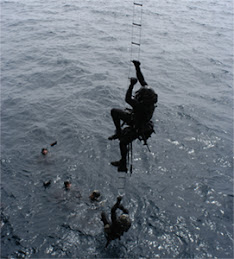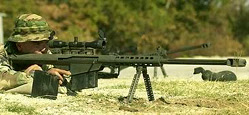http://www.infoplease.com/ce6/society/A0858032.html
Beginnings through the Nineteenth Century
The importance of espionage in military affairs has been recognized since the beginning of recorded history. The Egyptians had a well-developed secret service, and spying and subversion are mentioned in the Iliad and in the Bible. The ancient Chinese treatise (c.500 B.C.) on the art of war (see Sun Tzu) devotes much attention to deception and intelligence gathering, arguing that all war is based on deception. In the Middle Ages, political espionage became important. Joan of Arc was betrayed by Bishop Pierre Cauchon of Beauvais, a spy in the pay of the English, and Sir Francis Walsingham developed an efficient political spy system for Elizabeth I. With the growth of the modern national state, systematized espionage became a fundamental part of government in most countries. Joseph Fouché is credited with developing the first modern political espionage system, and Frederick II of Prussia is regarded as the founder of modern military espionage. During the American Revolution, Nathan Hale and Benedict Arnold achieved fame as spies, and there was considerable use of spies on both sides during the U.S. Civil War.
In the Twentieth Century
By World War I, all the great powers except the United States had elaborate civilian espionage systems and all national military establishments had intelligence units. To protect the country against foreign agents, the U.S. Congress passed the Espionage Statute of 1917. Mata Hari, who obtained information for Germany by seducing French officials, was the most noted espionage agent of World War I. Germany and Japan established elaborate espionage nets in the years preceding World War II. In 1942 the Office of Strategic Services was founded by Gen. William J. Donovan. However, the British system was the keystone of Allied intelligence.
Since World War II, espionage activity has enlarged considerably, much of it growing out of the cold war between the United States and the former USSR. Russia and the Soviet Union have had a long tradition of espionage ranging from the Czar's Okhrana to the Committee for State Security (the KGB), which also acted as a secret police force. In the United States the 1947 National Security Act created the Central Intelligence Agency (CIA) to coordinate intelligence and the National Security Agency for research into codes and electronic communication. In addition to these, the United States has 13 other intelligence gathering agencies; most of the U.S. expenditures for intelligence gathering are budgeted to various Defense Dept. agencies and their programs. Under the intelligence reorganization of 2004, the director of national intelligence is responsible for overseeing and coordinating the activities and budgets of the U.S. intelligence agencies.
Famous cold war espionage cases include Alger Hiss and Whittaker Chambers and the Rosenberg Case. In 1952 the Communist Chinese captured two CIA agents, and in 1960 Francis Gary Powers, flying a U-2 reconnaissance mission over the Soviet Union for the CIA, was shot down and captured. During the cold war, many Soviet intelligence officials defected to the West, including Gen. Walter Krivitsky, Victor Kravchenko, Vladimir Petrov, Peter Deriabin Pawel Monat, and Oleg Penkovsky, of the GRU (Soviet military intelligence). Among Western officials who defected to the Soviet Union are Guy F. Burgess and Donald D. Maclean of Great Britain in 1951, Otto John of West Germany in 1954, William H. Martin and Bernon F. Mitchell, U.S. cryptographers, in 1960, and Harold (Kim) Philby of Great Britain in 1962. U.S. acknowledgment of its U-2 flights and the exchange of Francis Gary Powers for Rudolf Abel in 1962 implied the legitimacy of some espionage as an arm of foreign policy.
China has a very cost-effective intelligence program that is especially effective in monitoring neighboring countries. Smaller countries can also mount effective and focused espionage efforts. The Vietnamese Communists, for example, had consistently superior intelligence during the Vietnam War. Israel probably has the best espionage establishment in the world. Some of the Muslim countries, especially Libya, Iran, and Syria, have highly developed operations as well. Iran's Savak was particularly feared by Iranian dissidents before the Iranian Revolution.








Tiada ulasan:
Catat Ulasan